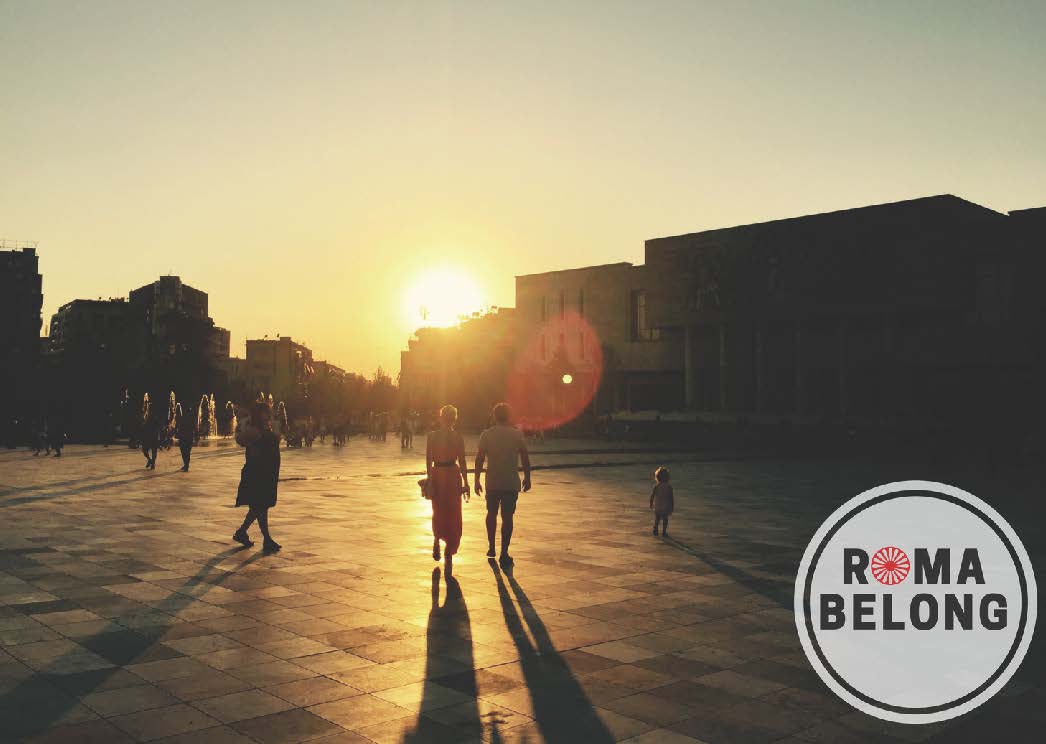Stateless Roma in Albania Held Back by Marginalisation and Discrimination
08 June 2018
Tirana, Budapest 8 June 2018: Negative stereotypes, marginalisation and discrimination are making Roma vulnerable to the risks of statelessness in Albania, according to a new report released today by the European Roma Rights Centre (ERRC), the European Network on Statelessness (ENS), the Institute on Statelessness and Inclusion (ISI), and the Tirana Legal Aid Society (TLAS). The research was published today at an event in Tirana attended by government ministers, UN officials, and Romani people affected by the risk of statelessness.

The report shows how statelessness exacerbates the multiple types of discrimination faced by Romani people in Albania. Statelessness passes from parent to child, meaning they are often left to grow up without a nationality, struggling to access key services such as education, healthcare and housing.
“I have lost my hopes because I have years and years waiting for the registration of myself and my children. I don’t understand why this process is so hard for me and those like me in Albania” said Sonila, a 27-year-old Romani woman attending the launch event.
The organisations’ findings show that the legal framework in Albania, whilst not discriminatory in itself, is not equipped to address the multiple discrimination Roma are likely to experience. Despite this situation and the obvious links, discrimination is often not necessarily seen in Albania as a cause and consequence of statelessness.
Roma also face significant challenges accessing justice in Albania, in part because of bureaucratic failings on the part of authorities. Roma who are denied nationality and documentation are often unable to seek legal redress because they are without the required documentation to prove their eligibility to access legal aid.
Nicole Garbin, a lawyer at the European Roma Rights Centre, described her concern regarding how little significance is attached to the issue of statelessness. “Albania has obligations in its national and international law about non-discrimination, registering births, and the right to a nationality – but these are not followed through on” says Garbin. “Romani children born abroad are being put at risk of statelessness because of all the bureaucratic hurdles their parents, Albanian citizens, need to overcome in order to register their birth” she says, referring to the case the ERRC has recently filed together with TLAS before the Human Rights Committee.
Part of the challenge in addressing Roma statelessness is the lack of available data. Roma at risk of statelessness are made invisible to policymakers without accurate data. This further exacerbates the problem, making it more difficult to plan a suitable policy response, and easier to deny the scale or seriousness of the issue.
Chris Nash, Director of the European Network on Statelessness, said “For too long now a myth has been allowed to persist that Roma are somehow responsible for their own statelessness. Our research emphatically shows that this is not the case, and hopefully our report launched today will act as a much needed catalyst for urgent government action, supported by close monitoring through the EU enlargement process.”
Raimonda Bozo, the Director of Tirana Legal Aid Society, said: “TLAS has more than 10 years providing legal aid services to marginalised persons at risk of being stateless, filling the gaps caused by the missing regulatory legal framework, which affects continuously a considerable number of poor families. It is time for the responsible Albanian authorities in consultation with the best practices, to undertake proper legal actions in accordance with EU recommendations.”
European Union Institutions must ensure that antigypsyism and Roma statelessness in Albania is thoroughly addressed as a matter of priority throughout the EU accession process. Albanian authorities should ensure equal access to civil registration and documentation procedures for Roma, as well as reform law and practice which serves to deny Roma their right to a nationality. In particular, Albania must safeguard every child’s right to a nationality, irrespective of the status, documentation, or actions of their parents. This should be a part of the government’s National Action Plan working towards the UN Sustainable Development Goals, to ensure that “no one is left behind”.
This press release is also available in Albanian.
The Roma Belong: Statelessness, Discrimination & Marginalisation of Roma in Albania report can be viewed here in Albanian.
For media inquiries contact:
European Roma Rights Centre
Jonathan Lee, Communications Officer, jonathan.lee@errc.org, +36 30 500 2118 or Nicole Garbin, Lawyer, nicole.garbin@errc.org, +36 30 950 0723
European Network on Statelessness
Nina Murray, Head of Policy & Research, nina.murray@statelessness.eu, +44 77264 72797 or Chris Nash, ENS Director, chris.nash@statelessness.eu, +44 77264 72797
Tirana Legal Aid Society
Raimonda Bozo, Executive Director, Tirana Legal Aid Society, rbozo@tlas.org.al, +35 56 9208 7930




